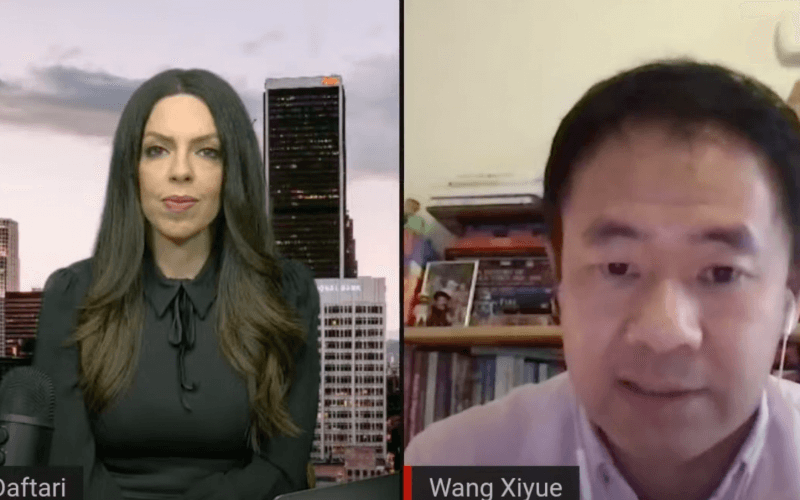A former Iran hostage believes the Biden administration is “relinquishing” control of JCPOA negotiations with the Iranian regime in its “desperate” attempts to get Iran to engage in diplomatic relations.
“Put yourself in the Iranian regime’s shoes,” said Xiyue Wang who was held captive by Iran’s regime for 40 months. “If you’re seeing Americans are so determined to do this [re-enter a nuclear deal], what are you going to do? You are going to escalate your provocation as a leverage to demand more because it doesn’t matter because you know they want it,” said Wang on The Foreign Desk with Lisa Daftari podcast Thursday.
In 2016, Wang was unjustly imprisoned in Iran as he was conducting research for his PhD which he was obtaining at Princeton University and was later wrongly convicted of espionage against the regime, leading to 3 years of detention in Tehran’s notoriously brutal Evin Prison and many days in solitary confinement.
Wang was forced into making a confession and was told by interrogators that, while they knew he was innocent, they needed to convict him of espionage to make a hostage-exchange deal with the U.S.
The interrogators “very explicitly” told Wang that they wanted “a deal with the United States,” and “if you don’t confess, you go back to solitary confinement until you confess. And if you don’t confess, you will never be able to see your wife and son. You will never be able to set foot on the soil of the United States. You will rot here.”
Prior to Wang’s detention, he admittedly had a progressive view of Iran, having been “steeped in the kind of liberal education” that leads one to believe the grievances faced by Iran are heavily the result of U.S. actions.
While Wang still considers himself liberal “in many ways,” his stance towards Iran has drastically changed.
“Five years ago, if you ask me how I look at sanctions, I will tell you ‘well, the sanctions are hurting innocent people. The collateral damage is un-permissible. It’s just evil and immoral for us to do that. But then, when I went to Iran, I kind of learned another side of the coin,” said Wang.
While Wang continues to believe the sanctions are immoral, he expresses a new understanding that the regime is to blame for the sanctions, not the U.S. “What the Iranian regime is doing on their own people, on the people of other countries in the Middle East and to the world’s security and peace is also immoral. They have the agency to undo what they are doing, but they decide not to, and they decide they are to maintain having international pressure through sanctions on the Iranian populace, so they are first and foremost to be blamed, not the United States, for the sanctions the Iranian people are enduring.”
Wang is unwavering in his conviction that “the Iranian regime is not interested in diplomacy” or in changing its malign behavior, and expresses that the tendency of U.S. progressives to act “as if facts don’t matter” in relation to Iran is “the most disturbing thing [he’s] seen.”
“The problem is that in many progressive’s eyes, the Iranian regime is somehow redeemable because they call out the evil, the injustices in the American system. Because of that it seems we share something in common with them; therefore, we can work with them…this is wishful thinking. People who think like that have not put themselves in the position of the Iranian regime, these mullahs, the way they think,” said Wang, who is now a fellow at American Enterprise Institute.
Wang’s advice to U.S. policymakers and the international community is to “be patient,” stating that “the ball is in [Iran’s] court. They have been denying, and they need to come around and embrace diplomacy. And before that happens, we should not slack our pressure on the Iranian regime.”










